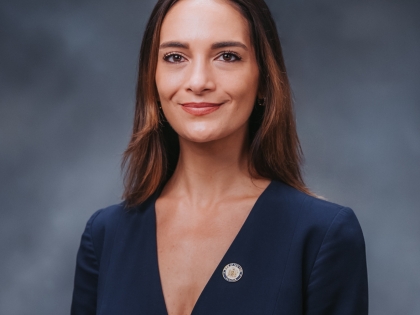
Lawmakers Demand MTA Resume Cash Sales at Subway Booths
(Brooklyn, NY) Members of the New York State Legislature, public transportation advocates, and TWU workers are holding a rally outside of Broadway Junction Train Station to demand the MTA resume cash transactions at subway booths and keep Station Agents in the system. They are extremely concerned the MTA wants to permanently end cash sales at subway booths and remove station agents across the city. The MTA paused cash sales at the height of the Covid-19 Pandemic in its subway and commuter rail system. While it resumed cash sales for its suburban LIRR and Metro-North riders, it has refused to do the same for subway riders, creating two different levels of customer service.
“During the pandemic, the MTA stopped accepting cash at the over 450 stations that they operate across the city. Making this change permanent will have a devastating impact in our low-income communities throughout the city.” State Senator Julia Salazar said. “There is an urgent need for the MTA to bring the acceptance of cash back to our booths, and it is evident that there is overwhelming support for the MTA to reverse their policy.”
“The current automated system at stations has proven to be cumbersome and inefficient with regular technical problems with equipment and many mass transit users are unbanked or underbanked, and others do not have access to cell phones,” Assemblymember Catalina Cruz said. “High rates of poverty in New York City and the surrounding areas must be properly taken into account as the MTA considers moving towards a cashless transportation system. We must bring back cash to our toll booths to ensure that our communities”
TWU Local 100 President Tony Utano said, “I guess the MTA wants more people jumping turnstiles. They’ve made it more difficult for riders to pay the fare, not easier. Everyone knows the MetroCard vending machines are unreliable. Riders need the ability to purchase trips at the booths. It’s basic customer service. This is an opportunity for the new interim Chairman to show that he cares about riders – all riders.”
"At a moment in which NY is trying to recover from the massive challenges because of the pandemic, eliminating station agents is not the right thing to do. Not only does it take away jobs from our working-class communities, but it also will reduce rider safety.” said State Senator Robert Jackson. “In addition, it will neglect the needs of the millions of MTA users in New York City who depend on the help of the MTA staff and don't know how to use the machines already available at our subway stations. Today I stand in solidarity with my colleagues Senator Salazar and Assemblywoman Cruz, the public transportation advocates, and TWU workers to voice our strong concerns with the MTA's plans to remove station agents to transition to a cashless system."
"Ending cash transactions at subway stations will disenfranchise the thousands of New York households who are unbanked or underbanked, and whose livelihoods depend on public transportation. In addition, removing station agents not only eliminates a layer of safety and vigilance from our stations, but also alienates New Yorkers who are not comfortable using automated machines.” said State Senator Leroy Comrie. “As the MTA recovers from the devastating economic effects of the COVID-19 pandemic, the agency should ensure that all riders are able to comfortably pay their fare and use the system that keeps our city running."
"By eliminating station agents, the MTA is limiting public transit access for thousands of New Yorkers, especially in low-income communities who rely on these booths given that they may not have access to a credit card or a cell phone to purchase their Metrocard," said State Senator Gustavo Rivera. "Our transportation system should serve every New Yorker equitably and the implementation of a cashless-paying system will further widen the transportation disparities that have prevailed in our City for a very long time."
“At a time when we should be making our transportation system more inclusive, equitable, and easier to access, the proposed cashless fare-paying system would make it more difficult — creating new barriers that will disproportionately hurt communities of color,” said State Senator Jamaal Bailey. “With hundreds of thousands of New Yorkers relying on cash as their only payment method and Bronxites making up the highest rates of unbanked and underbanked households citywide, the proposed measure is unconscionable, discriminatory, and would only serve to further marginalize vulnerable populations. I look forward to working with the MTA to address these concerns and ensure our transportation system equitably serves all New Yorkers.”
"It’s deja vu all over again with the MTA resurrecting it’s long-pursued but awfully-advised dream of closing station booths and eliminating station agents,” said State Senator John Liu. “And this time they’re upping the ante by going cashless. With ridership at all-time lows, there could not be a worse time to proceed with these penny-wise pound-foolish schemes."
State Senator James Sanders Jr. said “While automation may seem like it would make public transit faster and easier, cashless options are difficult for working class New Yorkers and the underbanked. It would be impossible for those without a debit card or credit card to purchase a MetroCard from a vending machine, for example. Also, this type of system will cost many transit workers their jobs, which is especially devastating at a time when the COVID-19 has eliminated so many employment opportunities. I stand with transit workers who have been at the forefront of making our city and state function through this pandemic, sometimes at the cost of their own lives and health.”
“The proposed system of cashless fare-paying would leave countless working people across New York City without access to our public transit system, as large swaths of our community are unbanked or underbanked and rely solely on cash payments," said Senator Andrew Gounardes. "Not to mention, the removal of station agents throughout the city would be a huge inconvenience to subway riders, and would detract from the level of customer service and safety that New Yorkers deserve. We need to make it easier for people to use the subway, not harder.”
At the height of the COVID-19 pandemic, with all the risk and uncertainty we faced, restricting cash transactions seemed like an inconvenient but perhaps necessary precaution in the transit system and other settings. However, as the public health situation improves, the MTA should return to accepting cash as an option for paying the fare,” said State Senator Brian Kavanagh. “I am concerned about the ongoing impact of no-cash restrictions on lower-income New Yorkers who lack access to credit or debit cards and those who have limited English proficiency and may have trouble using MetroCard vending machines. Moreover, the MTA should think twice before counting on any savings that they might hope to achieve by reducing the number of station agents. These workers do more than collect fares. They provide public information and directions, especially when often-confusing service changes are in effect, and they offer an extra layer of security to a system that often reminds us that if we see something, we should say something. I urge the MTA to reconsider its plans and instead find ways to increase access for all riders without reducing their sense of security, and I thank TWU Local 100 President Tony Utano, public transit advocates, and my colleagues Senator Julia Salazar and Assemblywoman Catalina Cruz for their leadership on this issue.”
“Many New Yorkers, including my Bronx constituents, do not have access to a bank or cell phone, and speak limited English. It is already a daily struggle as they work tirelessly to provide for themselves and their loved ones,” said Assemblymember Kenny Burgos. “Transitioning to a cashless system and eliminating booth agents will only increase the challenges underserved communities face each day, and I strongly urge the MTA to reconsider its decision.”
“After a year of record ridership lows, the MTA should pull out all the stops to welcome riders back on board," said Jaqi Cohen, Campaign Director for the NYPIRG Straphangers Campaign. "By ending cash transactions at token booths, the authority is doing the opposite. Many low-income New Yorkers do not have access to forms of electronic payment, and as any frustrated straphanger rushing to work during a morning commute can attest, MetroCard vending machines are chronically broken. Instead of creating unnecessary barriers to entry, the MTA should make every effort to expand access to transit, including keeping hand-to-hand transactions at subway stations, and make paying the fare even easier."
"Cash is still king for many New Yorkers, including many disabled New Yorkers," said Jessica De La Rosa, Systems Advocate for the Brooklyn Center for Independence of the Disabled. "What the MTA forgets is that not everyone has a bank card or can use MetroCard Vending Machines easily, or at all, when they go out of service." De La Rosa also noted the importance of having open booths so disabled riders can find help quickly without roaming a station looking for assistance.
# # #

